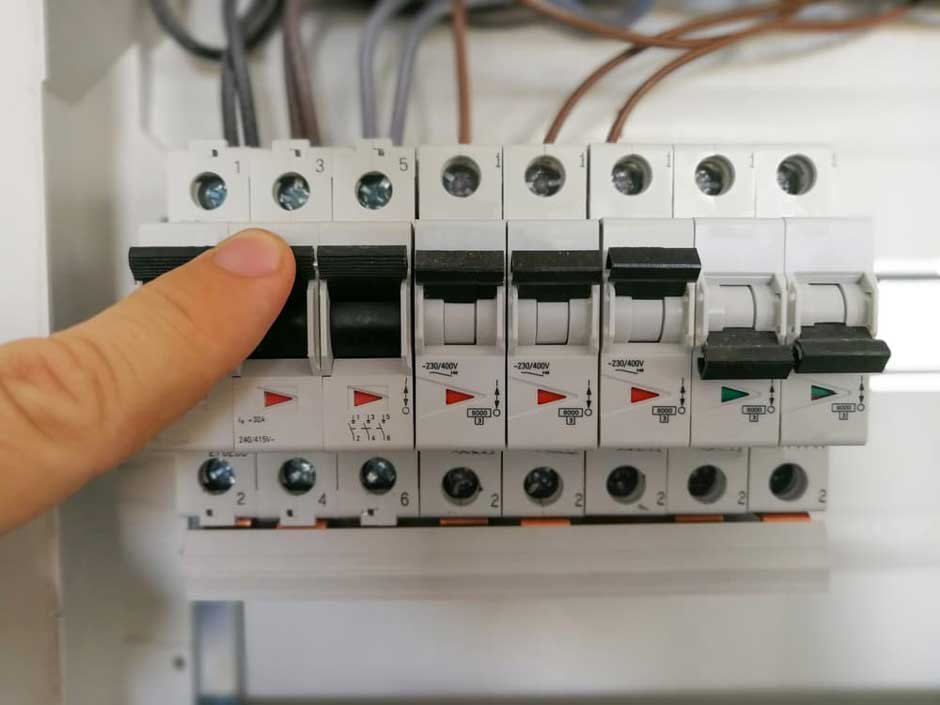In electrical systems, understanding the distinctions between a circuit breaker and a breaker switch is crucial for ensuring safety and efficiency. Both devices play significant roles, but they differ in functions, applications, and designs. Circuit breakers are automatic electrical switches that protect circuits from short circuits and overloads by interrupting current flow when a fault is detected.
They offer reset capability and come in various types, suitable for residential to industrial settings. On the other hand, breaker switch is a manual device used to open or close electrical circuits, requiring physical action to operate. They are simpler in design, without the ability to detect anomalies or interrupt current automatically, and are commonly used in residential light switches and power strips.
Understanding Circuit Breakers and Breaker Switches
A circuit breaker is an automated switch that protects circuits from overloads or short circuits by interrupting current flow upon fault detection. Key characteristics include automatic operation, reset capability, and multiple types like thermal-magnetic and electronic, suitable for various applications.
In contrast, a breaker switch, or switch, is a manual device used to open or close electrical circuits. Unlike circuit breaker, breaker switches require physical action to operate and are simpler in design, lacking the ability to detect electrical anomalies or automatically interrupt current flow. They are commonly used in residential light switches, power strips, and equipment where manual control is sufficient.
Key Differences
The fundamental differences between circuit breakers and breaker switches lie in their operation, design, and applications. Here’s a breakdown of these differences:
- Operation:They operate automatically in response to electrical faults, while breaker switches require manual operation.
- Function: Circuit breakers are developed to protect circuits from overloads and short circuits, whereas breaker switches are used for manually opening and closing circuits.
- Complexity:They are more complex devices with advanced features like fault detection and reset capability, while breaker switches are simpler and do not offer such functionalities.
- Applications: Circuit breakers are used in environments that require automatic protection, such as industrial settings, whereas breaker switches are more suited to residential and light commercial applications.
Uses of Circuit Breakers
Circuit breakers are indispensable in various settings due to their protective features. Here are some common uses:
- Residential Protection: In homes, circuit breakers protect electrical systems from damage caused by overloaded circuits or short circuits. They ensure the safety of people by preventing electrical fires.
- Industrial Applications: In industrial settings, circuit breakers protect heavy machinery and equipment from electrical faults. They play a critical role in maintaining the safety and efficiency of manufacturing processes.
- Commercial Buildings:Commercial establishments use circuit breakers to protect their electrical infrastructure, ensuring the safety of employees and customers while maintaining continuous operations.
Uses of Breaker Switches
Breaker switches, with their manual operation, are utilised in various scenarios where simple control is needed:
- Lighting Systems:Breaker switches are commonly used in residential and commercial lighting systems, allowing users to control lighting circuits manually.
- Power Strips: Many power strips feature breaker switches, enabling users to turn off multiple devices simultaneously with a single switch.
- Equipment Control: Breaker switches are often used in equipment that does not require automated protection, providing a straightforward means of turning the equipment on or off.
Partnering with Reputable Energy Brands
When we talk about to electrical safety and efficiency, partnering with reputable energy brands is essential. These brands provide high-quality circuit breakers and breaker switches that meet stringent safety standards, ensuring the reliability and longevity of your electrical systems. Trusted manufacturers offer extensive support and warranties, addressing any issues promptly.
They also invest in innovation, continually improving their products for the latest in safety and efficiency. Whether for a residential home, commercial building, or industrial facility, choosing a reputable energy brand ensures top-notch electrical safety and performance. Understanding the differences and applications of circuit breakers and breaker switches is crucial for making informed decisions and enhancing the safety and functionality of your electrical infrastructure.

